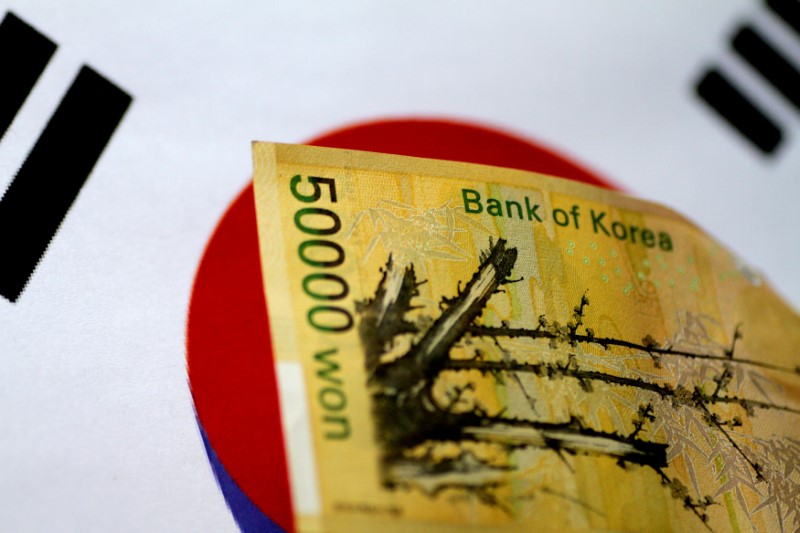© Reuters.
By Jihoon Lee
SEOUL (Reuters) -South Korean state-run banks are providing at least two trillion won ($1.54 billion) of liquidity support to a credit union hit by customer withdrawals, joining commercial banks also offering financing to reduce risks of a crunch in the local money market.
The Industrial Bank of Korea and the Korea Development Bank said on Tuesday they had signed repurchase agreements with MG Community Credit Cooperatives (MGCCC) for 1.5 trillion won and an amount between 0.5 to 2.0 trillion won, respectively.
Customer withdrawals from MGCCC accelerated after media reports on its debt delinquency rates.
“MGCCC is not yet in need of all the funds, it seems, but the government is preparing a back-up tool in advance as it cannot leave the credit union continuing to sell bonds,” said Kim Sang-man, a credit analyst at Hana Securities.
South Korea’s financial services regulator has also asked major commercial banks to prepare around 5 trillion won in financing to support the credit union, Reuters reported on Monday.
A MGCCC spokesperson said the repo agreements were not because of an “excessive shortage” of liquidity and that financial markets should not be overly concerned about the situation.
In a statement last week, MGCCC said that its debt delinquency rate was manageable and it would work with the Interior Ministry to improve its financial soundness.
There have not been any indications so far that the situation at MGCCC is affecting South Korea’s major commercial banks. Credit default swap (CDS) premiums at the lenders were little changed this month after a spike late last year.
CDS are derivatives that offer insurance against the risk of a bond issuer not paying their creditors.
The five-year Woori Bank CDS was quoted at 45.33 on Tuesday, according to Refinitiv data, compared with 45.29 at the end of June and a five-year high of 75.17 in early November. Kookmin Bank’s CDS was quoted at 51.59, compared with 75.18 last November.
In November, a missed bond payment by a state-backed theme park sparked worries about real-estate projects, triggering a credit crunch in domestic money markets. The situation later stabilised after authorities introduced various liquidity support programmes.
($1 = 1,297.7400 won)
Read the full article here




